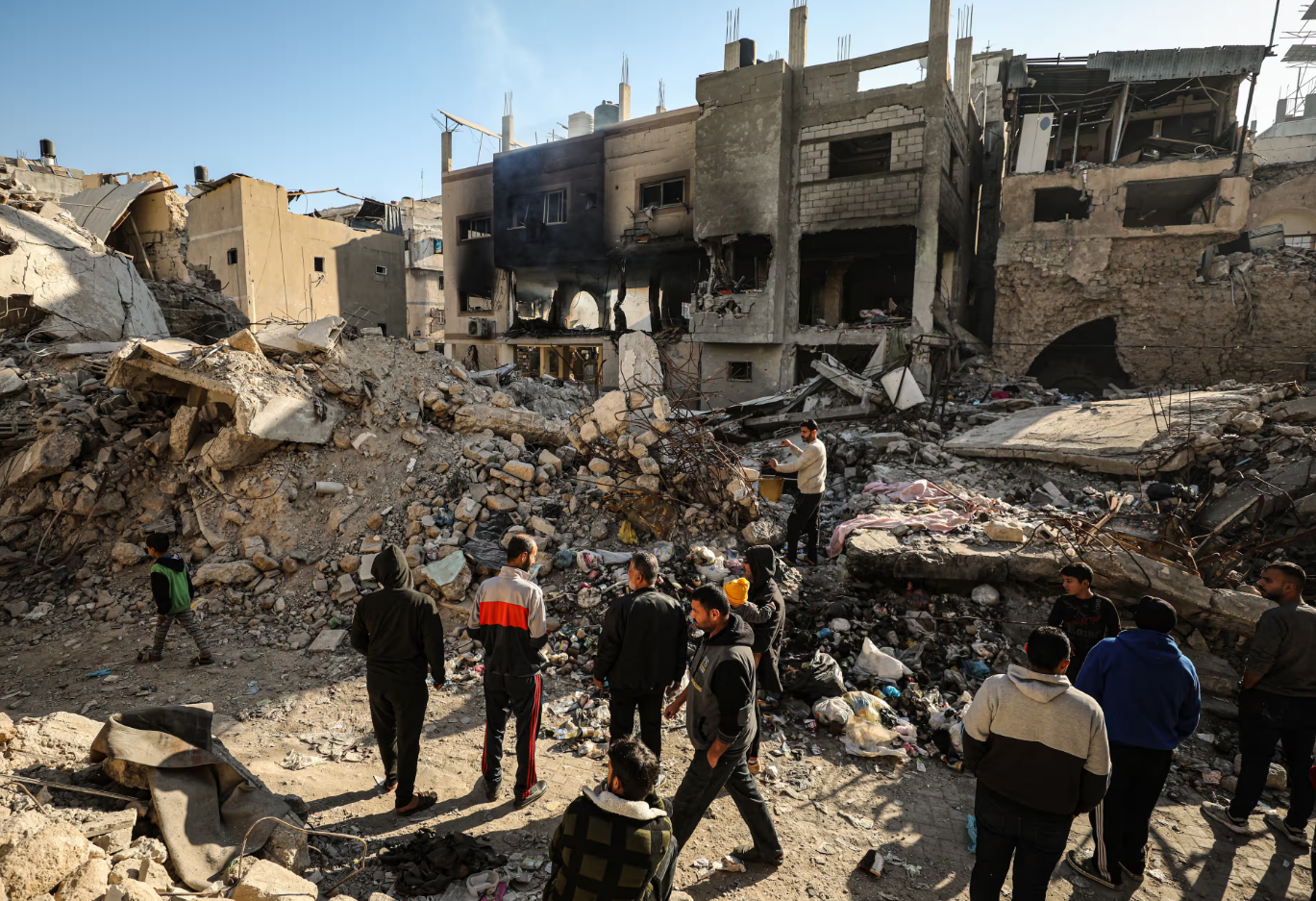Suit claims state department is deliberately bypassing the Leahy Law by failing to sanction Israeli units accused of widespread atrocities in Palestinian territories
The state department is facing a new lawsuit brought by Palestinians and Palestinian Americans accusing the agency of deliberately circumventing a decades-old US human rights law to continue funding Israeli military units accused of widespread atrocities in the occupied Palestinian territories.
The lawsuit, which was filed on Tuesday, marks the first time that victims of alleged human rights abuses are challenging the state department’s failure to ever sanction an Israeli security unit under the Leahy Law, a 1990s-era law that prohibits US military assistance to forces credibly implicated in gross human rights violations.
The plaintiffs include Amal Gaza, a pseudonym for a mathematics teacher from Gaza who has lost 20 family members; Shawan Jabarin, the director of the Palestinian human rights group Al-Haq, who endured six years of arbitrary detention in the West Bank; and Ahmed Moor, a Palestinian American with relatives in Gaza who have been repeatedly displaced by the ongoing Israeli offensive. (Moor has written opinion pieces for the Guardian.) Along with two other plaintiffs, they are demanding judicial intervention to force the US to comply with the law.
With the death toll in Gaza since last October reportedly approaching 45,000 and humanitarian aid to the territory severely restricted, the legal challenge represents an attempt to force the administration to implement a law that has been seen as effective in helping the US to stem human rights violations by foreign military units in central America, Colombia, Nepal, and other countries.
The Leahy Law was designed to prohibit foreign governments from providing US assistance to any security forces that the US identifies as being ineligible due to a gross violation of human rights. But, as one former state official told the Guardian earlier this year: “The rules were different for Israel.”
The lawsuit was filed in Washington DC district court.
Also taking part in the suit is Said Assali, a Palestinian American who had six family members killed in airstrikes in Gaza since the bombardments and incursions from Israel began last year.
“I’ve had … immediate relatives, cousins and other family that have been murdered in Israeli airstrikes,” Assali told the Guardian. “As an American, this is a clear violation of our laws, and it is violations the state department is carrying out actively and aggressively – and it’s using our tax dollars.”
The complaint hones in on a litany of alleged violations committed by Israeli military units with US support, including torture, prolonged detention without charge, forced disappearance, and what the plaintiffs describe as actions amounting to genocide in Gaza.
It references findings by international judicial bodies like the International Criminal Court that culminated in arrest warrants for the Israeli prime minister, Benjamin Netanyahu, and the former Israeli defense minister Yoav Gallant – findings that were rejected by the US. It also points to pre-7 October cases that led to investigations under the Leahy Law that were ultimately dismissed by Secretary of State Antony Blinken, such as the 2022 death of 78-year-old Omar As’ad in the West Bank.
The state department declined to comment.
A Guardian investigation published in January found that top US officials had quietly reviewed more than a dozen incidents of alleged gross violations of human rights by Israeli security forces since 2020, but implemented special bureaucratic measures that have ultimately preserved access to US weapons for the allegedly responsible units. The investigation found that special mechanisms have been used over the last few years to shield Israel even as other allies’ military units who receive US support – including, sources say, Ukraine – have privately been sanctioned and faced consequences for committing human rights violations.
In April, Reuters reported that some senior US officials privately voiced their doubts to Blinken about Israel’s assurances that it was using US-supplied weapons in accordance with international humanitarian law. That same month, a coalition of 185 lawyers in both the Biden administration and private sector argued that they believe Israel’s military actions likely violate US humanitarian laws, a claim later repeated by 20 White House staffers who dissented in November.
The plaintiffs are represented by Dawn, a human rights advocacy group founded by Jamal Khashoggi, the Washington Post journalist murdered by Saudi Arabian agents.
“This is a historic effort to right the wrong of the state department’s decades of refusal to obey the law requiring it to restrict military aid to abusive military units in Israel,” said Sarah Leah Whitson, Dawn’s executive director.
She added: “What the state department is asking the world to believe is that no Israeli unit has ever committed a gross violation of human rights. This flies in the face of mountains of human rights reports and journalistic investigations. It flies in the face of the state department’s own human rights reports.”
Despite a barrage of internal and external pressure, the Biden administration has consistently maintained its “ironclad” support for Israel. A state department panel recommended months ago that Blinken block US aid to several Israeli military and police units accused of serious human rights abuses, but the secretary of state has yet to act.
Biden for his part has long rejected calls to limit military support to Israel, other than once pausing a planned shipment of 2,000lbs bombs. Congress has also rebuffed efforts to cut off aid, including a resolution to block additional arms sales to Israel introduced by Bernie Sanders in November.
Assali himself acknowledges the uphill climb in challenging the United States government on Israel policy. He says judicial action is just part of a broader strategic effort to track human rights violations and shift public discourse.
“It may feel like a fruitless thing, but I think it is correct and right, and part of a groundswell of actions that will eventually, hopefully lead to change,” he said. “All movements for social justice took decades – whether that’s the history of slavery, women’s suffrage or opposition to wars.”




